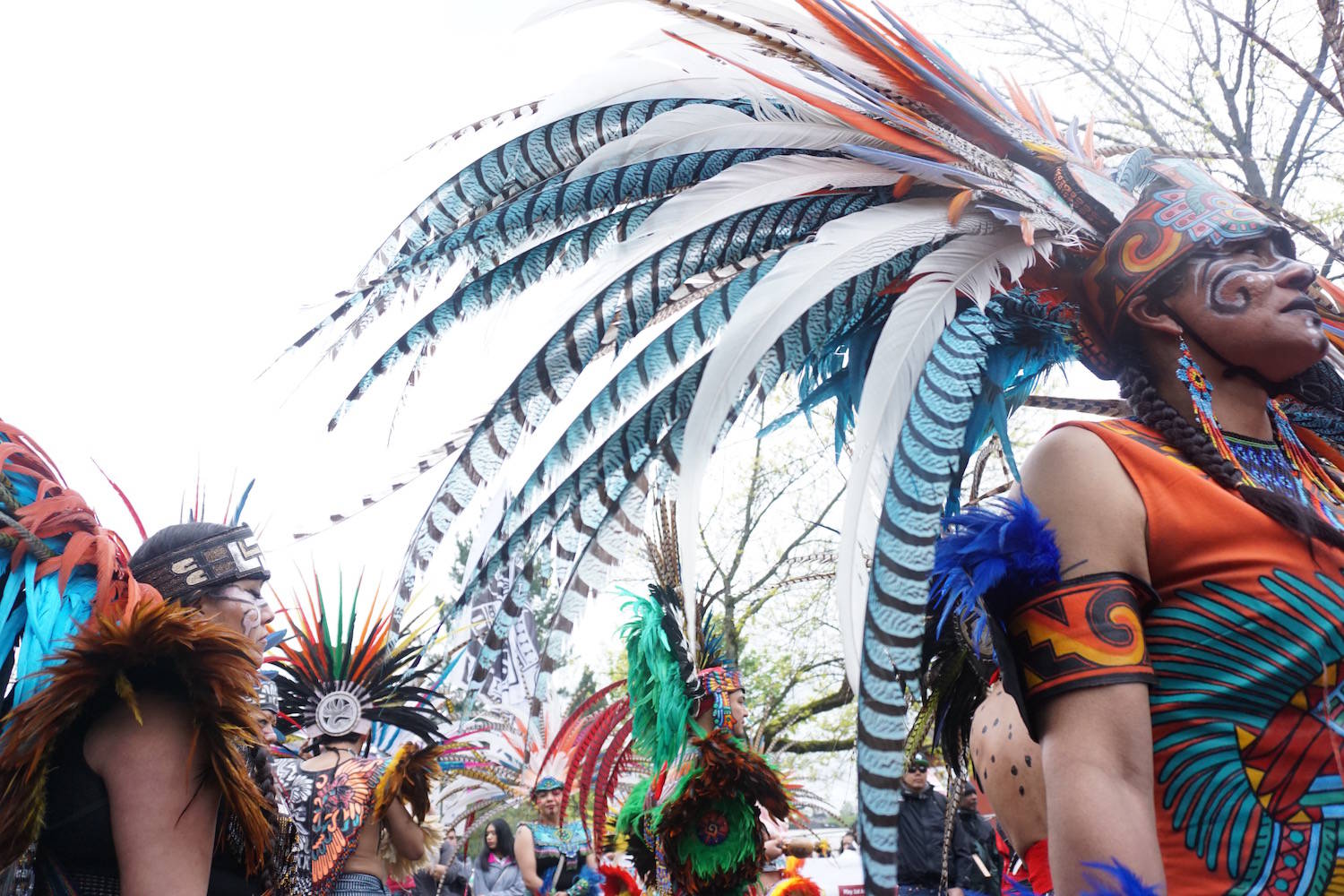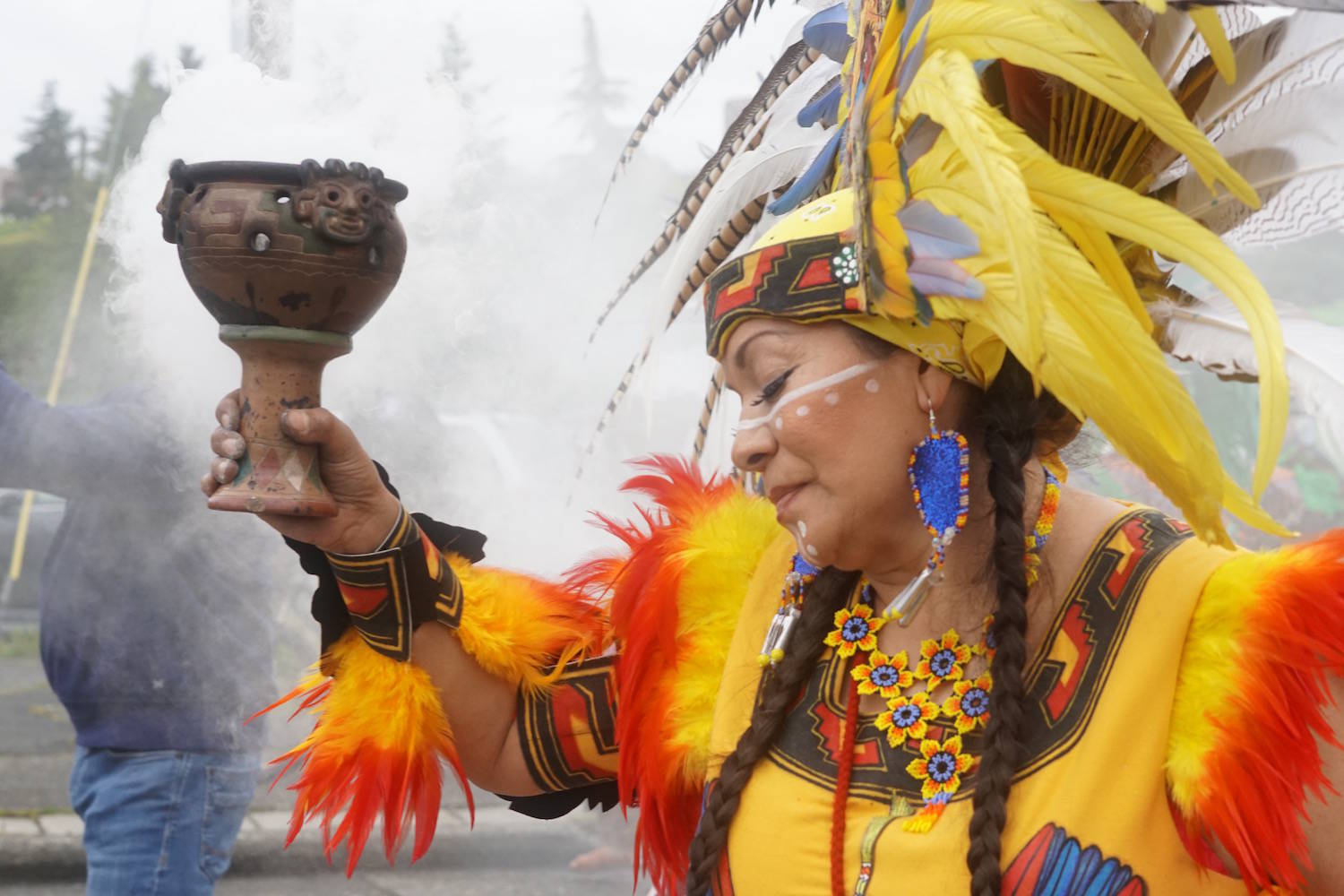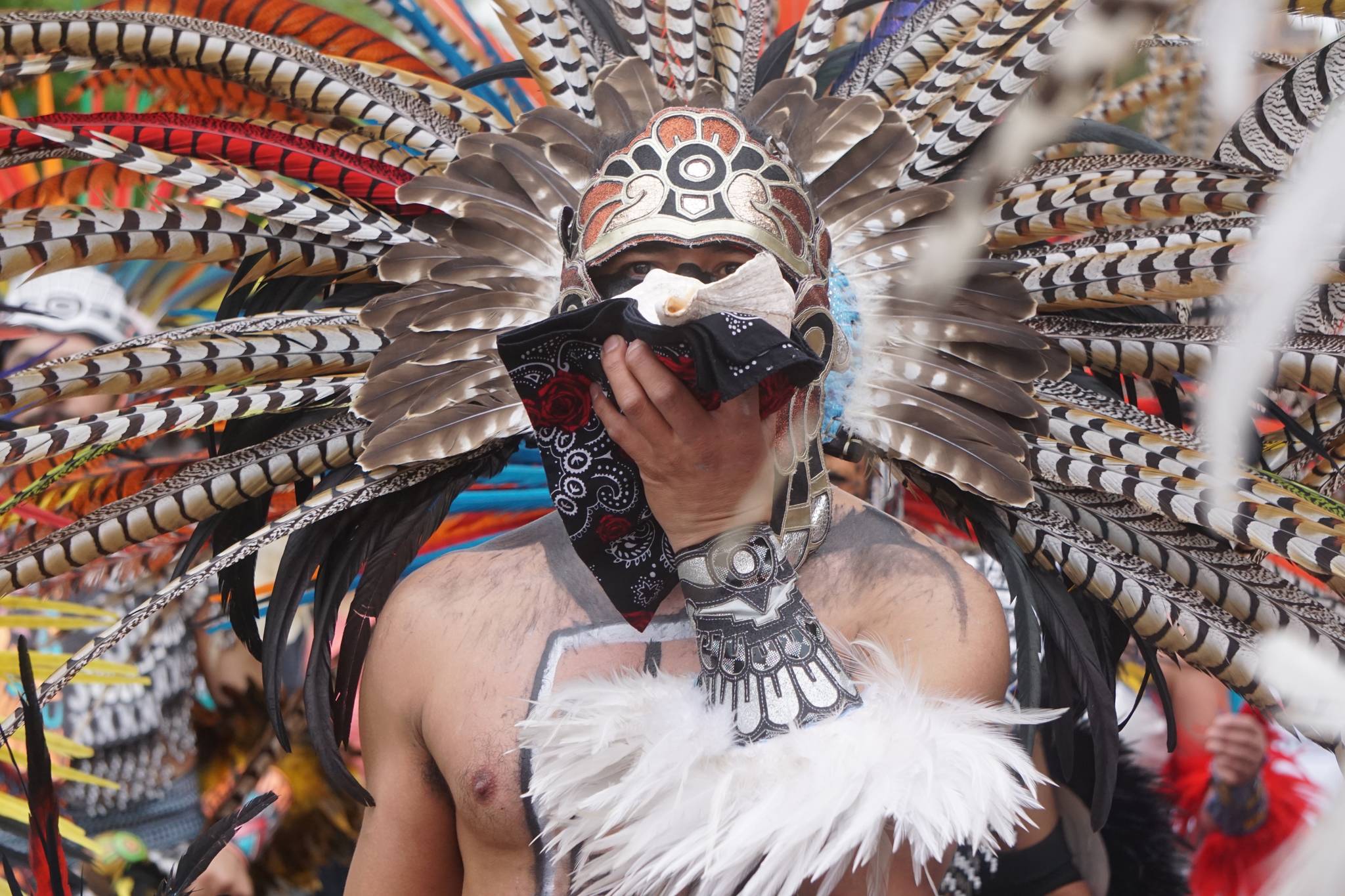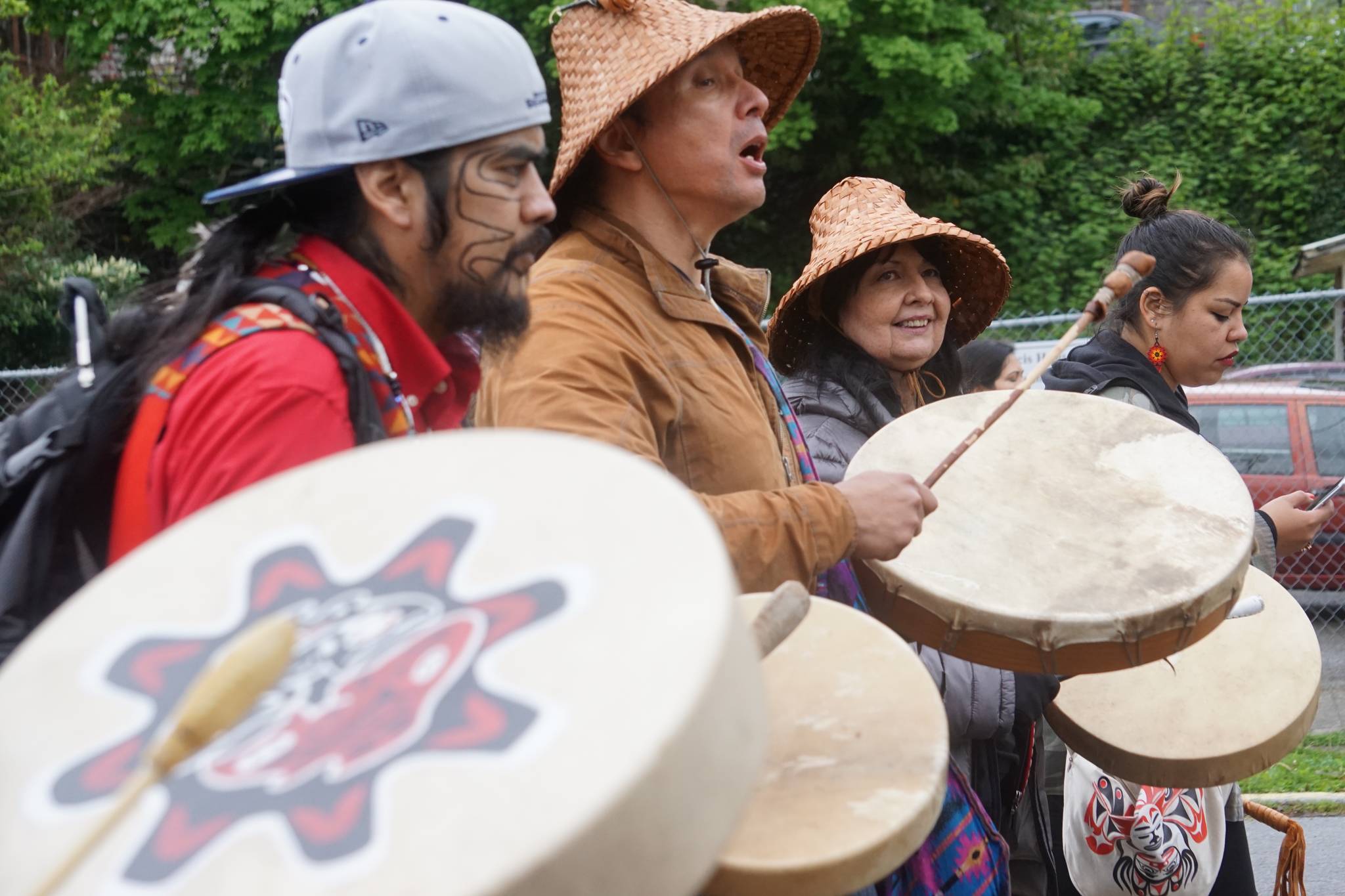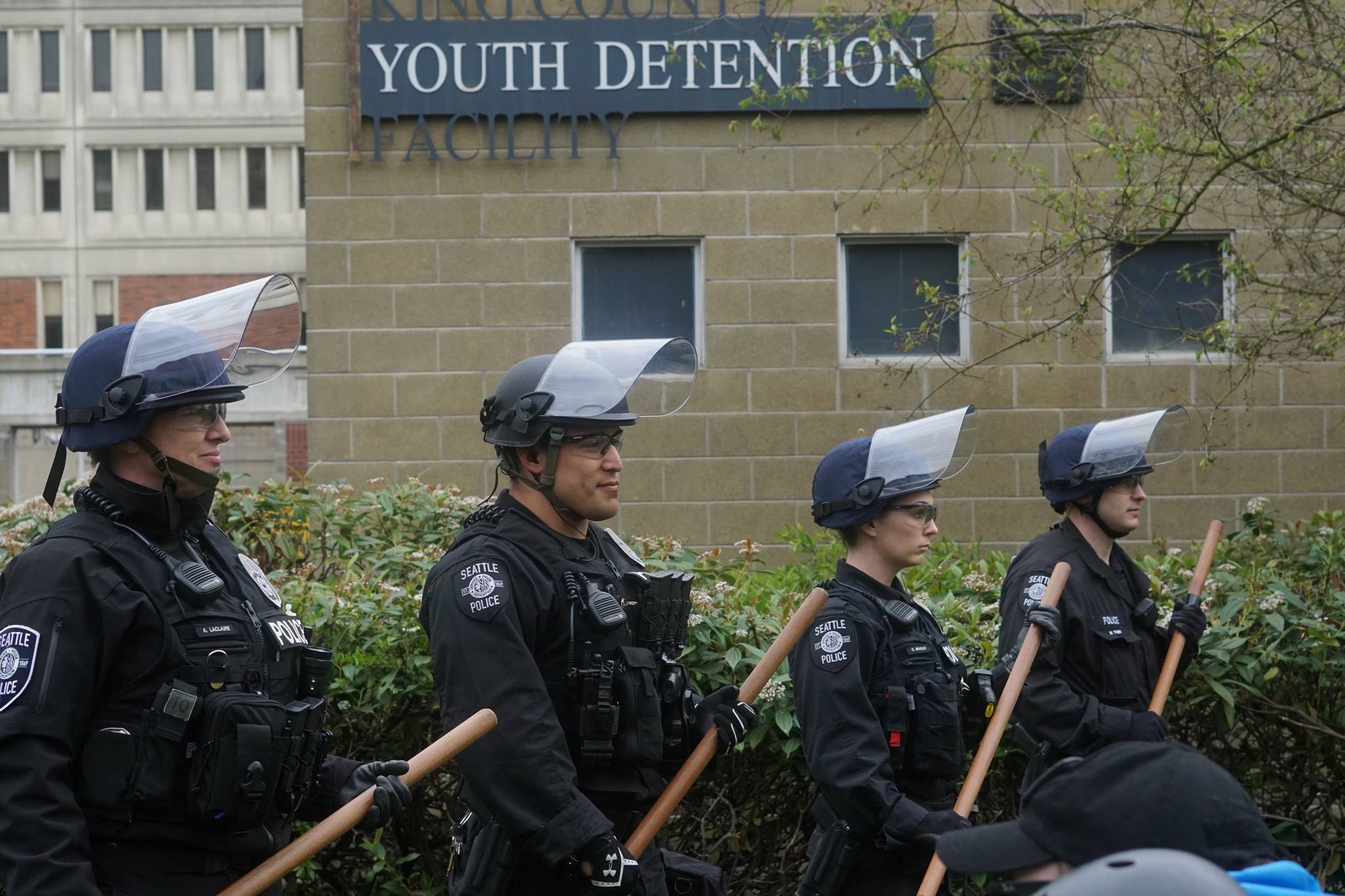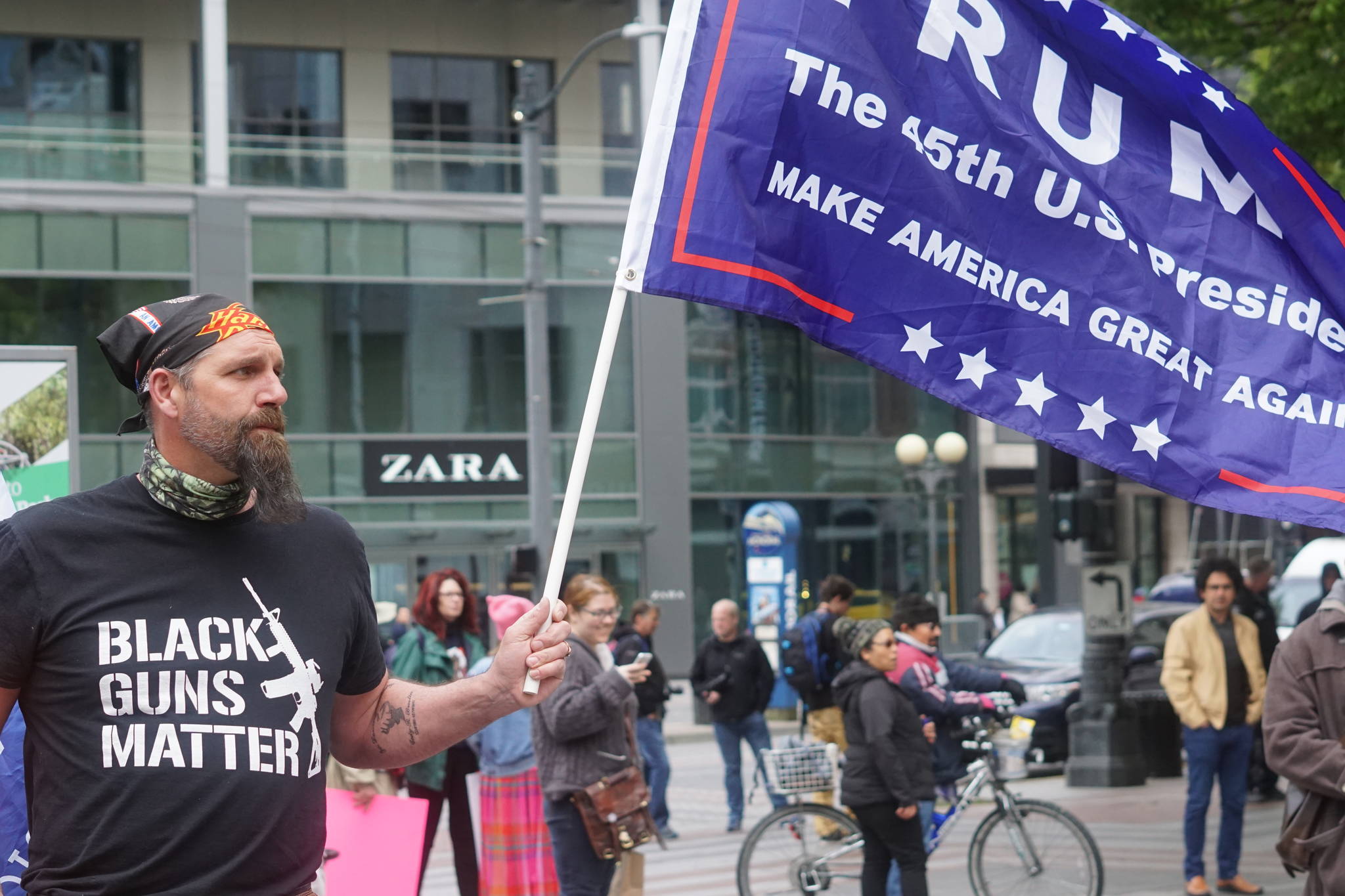Manuel Brito was born in Mexico, and for him this fight is personal. “I was brought here when I was 5 years old,” he says. “And for many years, I didn’t even know… I always thought I was an American citizen, really! Until I found out [from] my mom and dad: ‘Oh, no. You’re undocumented.’ ”
Today Brito is a U.S. citizen and an Air Force veteran, and has been a resident of Washington state for the past 52 years. He’s a board member of immigrant-rights group One America and travels around Washington helping undocumented people know their rights and start on a path to citizenship. “A lot of people helped me,” he says. “It was hard. It was hard. It took me five years to even become a resident… but now this is an opportunity for me to help those people who are here, undocumented, and teach them that they have rights, too.”
Brito, with thousands of others, rallied in Judkins Park Monday morning under a cold, drizzling rain, then marched to Seattle Center to shout the values Seattle has long been championing—especially since November 8. Speaker after speaker, in both English and Spanish, linked workers’ rights to immigration reform, affordable housing to health-care access, and the first General Strike to the contemporary anti-Trump movement. Most important, speakers thundered: Low-wage workers outnumber the rich and powerful.
“This, my friends, right here, is solidarity!” cried Leticia Parks, a member of Socialist Alternative as well as MORENA, a relatively new left-wing political party in Mexico. She went on to speak about how Trump-era rhetoric about borders and walls ignores how fluid such things are for corporations and the wealthy: “For the one percent there are simply no borders or walls,” she said.
Seattle’s wide array of socialist groups fanned out across the grass, as well as local labor unions, workers’-rights groups, immigrants’-rights groups, climate-justice groups, and a slew of other activists and organizations representing other left-wing causes. It seemed almost everyone was handing out fliers for meetings, discussions, events, and actions. Red May Seattle, for instance, a monthlong series of talks, films, and forums, asks Seattleites to “Take a Vacation From Capitalism” by exploring Karl Marx and other anti-capitalist thinkers, and to “assume for a month that the market is not the solution to the problems that the market creates.”
Protest sign after protest sign championed the rights of all immigrants, documented and undocumented (some local undocumented people, one organizer said quietly, did not attend out of fear that there’d be too many police, and possibly immigration agents, at the day’s events). Among them: “No One Is Illegal,” “No Borders, No Nations, No More Deportations,” “Ni Una Mas,” and the pun-very-much-intended “An Injury to Juan Is an Injury to Al.”
“Who works for a living? Who has a job?” shouted Nicole Grant, Executive Secretary-Treasurer of the M. L. King County Labor Council into the mic. “Well then, you’ve got that power and you know it!… Nothing happens without immigrants. Nothing happens without workers. We have all the power in the world.”
An activist named Dan, who asked his last name not be used, said he went to the Northwest Detention Center in Tacoma recently to support those on a hunger strike there to protest their treatment. (A few weeks ago, participants in the strike numbered as high as 750; more recently, according to activists supporting the detainees, at least 50 are continuing the effort by refusing meals and 100 are boycotting high-priced commissary items.) “It was really inspiring,” Dan said. “At one point we were chanting, ‘You are not alone! You are not alone!’ And we heard the prisoners chanting back. That was really powerful.” Dan said he attended the rally and march on Monday primarily to “stand in solidarity with my immigrant neighbors… in the face of a new wave of attacks from an extremely reactionary administration” and believes that mass civil disobedience—and more work stoppages and strikes like this one, and like the massive immigrants’-rights demonstrations in 2006—is necessary to force a change.
“We’re workers; we’re the people that make society work,” added Riva Sheinkman, an activist holding up one side of a banner co-hosted by the Freedom Socialist Party and Radical Women. “And yet the system in which we live treats us as if we’re completely superfluous! That’s why I’m here. The one thing that scares the people that seem to be running the system this way is that the workers [will] stop taking it. I think they should be frightened, because we’re the people that make this work—and without us, it won’t.” n
